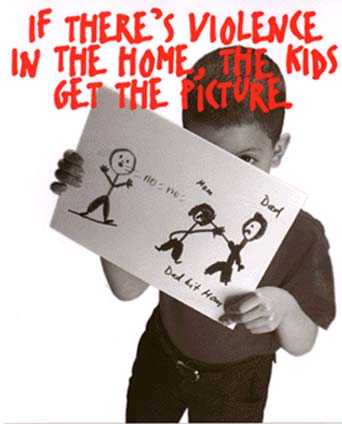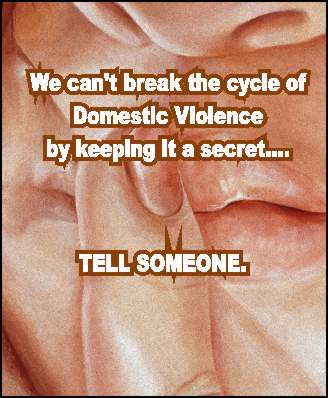For a one-page overview of VAWA 2005, please download our VAWA 2005 Fact Sheet (PDF). For a full summary of program changes, please download our VAWA 2005 Summary (PDF). You can also download the VAWA 2005 statute, (PL 109-162).
On January 5, 2006, the Violence Against Women Act of 2005 (VAWA) was signed into law by President George W.Bush. VAWA reauthorizes existing
programs to combat domestic violence, sexual assault, dating violence and stalking, and creates new ones to meet emerging needs of communities working to prevent the violence.
The National Network to End Domestic Violence (NNEDV) praised Congress and the Administration for their continued dedication to improving the lives of women and children.
"The reauthorization of the Violence Against Women Act ensures that communities have the tools they need to intervene in and ultimately prevent violence in our homes," said Lynn Rosenthal, President of NNEDV. "They has taken an important step forward in saving lives".
Rosenthal credits Senators Joseph Biden (D-DE), Arlen Specter (R-PA), Orrin Hatch (R-UT) and Patrick Leahy (D-VT) and Representatives Jim Sensenbrenner (R-WI-5), Mark Green (R WI-8), John Conyers (D-MI-14), Hilda Solis (D-CA-32), Ginny Brown-Waite (R FL-5), Deborah Pryce (R-OH-15), for championing the bill, saying “their efforts to pass a strong, comprehensive bill show a true commitment to ending domestic violence, dating violence, sexual assault and stalking.”
VAWA 2005 takes a more holistic approach to addressing violence against women. In addition to enhancing criminal and civil justice and community-based responses to these crimes, VAWA creates notable new focus areas such as:
“The housing provisions are of particular importance,” said Rosenthal. “Ninety-two percent of homeless women have experienced severe physical or sexual abuse at some point in their lives. We thank Representatives Michael Oxley (R-OH-4), Barney Frank (D-MA-4) and Bob Ney (R-OH-18) and Senators Richard Shelby (R-AL), Jack Reed (D-RI) and Paul Sarbanes (D-MD) for their leadership in ensuring housing protections and resources for victims.”
Initially passed in 1994, VAWA created the first federal legislation acknowledging domestic violence and sexual assaults as crimes, and provided federal resources to encourage community-coordinated responses to combating the violence. Its reauthorization in 2000 improved the foundation established by VAWA 1994 by creating a much-needed legal assistance program for victims and expanding the definition of crime to cover dating violence and stalking.
“The reauthorization of VAWA shows that our nation's policy makers recognize domestic violence as a devastating social problem,” said Rosenthal. “By applying a more comprehensive approach, we move one step closer to eradicating domestic violence.”
NNEDV has been a leading force in efforts to reauthorize VAWA. NNEDV and its member state domestic violence coalitions also played a crucial role in the passage of VAWA in 1994 and its reauthorization in 2000. NNEDV’s sister organization, the National Network to End Domestic Violence Fund (NNEDV Fund), has been instrumental in assisting state domestic violence coalitions and local communities in implementing current VAWA programs.
NNEDV is now working with state coalitions and national organizations to ensure VAWA is fully funded. Join us in this effort! Click here to join our VAWA Mobilization Campaign and receive VAWA mobilization action alerts.
You also can take action today by writing or calling your member of Congress or Senator and urging them to fully fund VAWA. For more information about funding for VAWA, including a sample letter you can use, click here.
Congressional offices and media, please use the email form for immediate answers to questions related to VAWA appropriations.


















No comments:
Post a Comment